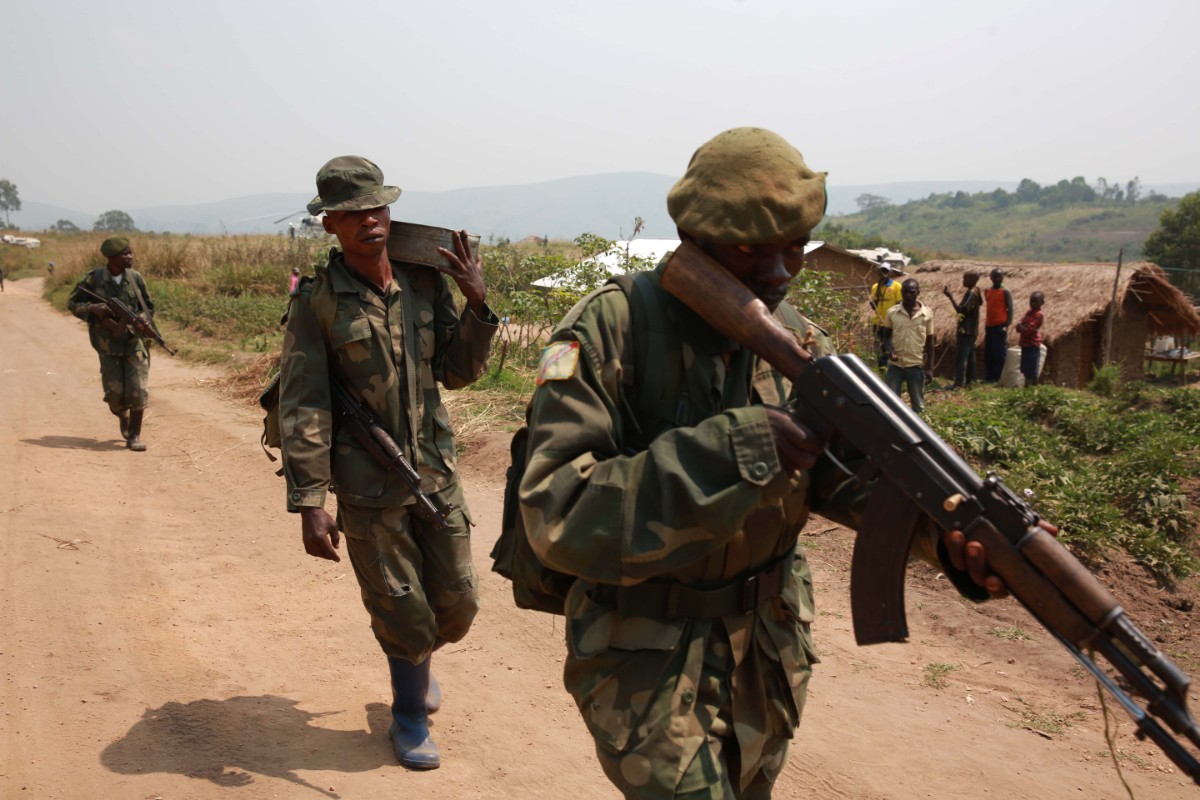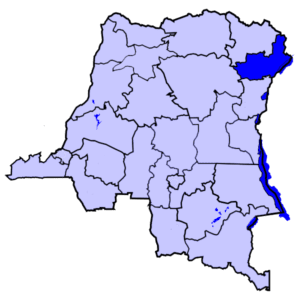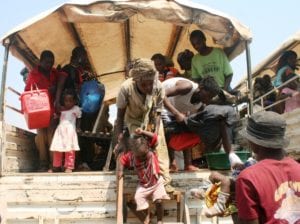 MONUSCO Photos [CC BY-SA 2.0 (https://creativecommons.org/licenses/by-sa/2.0)]
MONUSCO Photos [CC BY-SA 2.0 (https://creativecommons.org/licenses/by-sa/2.0)]
Climate Change & Ethnic Conflict in Africa Part II: DRC
This is part two of a two part series on the effects of climate change on ethnic conflict in Africa. Read part one here.
The consequences of climate change are not felt uniformly around the world and the regions most vulnerable to climate change are the ones least prepared for its effects.
Climate change’s effects can be seen all over the continent of Africa. In the Sahel, conflict in Mali is currently being fueled in part by climate change as local ethnic groups clash over land resources.
Conflict in the northeast Ituri province of the Democratic Republic of Congo (DRC) is already rampant – and the effects of climate change haven’t yet played a significant role in the conflict.
In the future, the consequences of climate change could exacerbate the already existing tensions between two local groups – the Hema and the Lendu.
What’s Already Happening?
Conflict between the Hema and Lendu has been occurring on-and-off since the turn of the century. One of the main points of friction between the groups is access to land. The Hema, traditionally herders, and the Lendu, traditionally farmers, compete for land resources to sustain their respective ways of life.
A recent string of attacks have targeted the Hema people, including one on June 17th, 2019 that left more than 160 people dead. The exact identity of those responsible for the attacks is still unknown.
From 1999-2007 open conflict between the two groups left more than 50,000 dead, making it one of the bloodiest chapters of the Congolese civil war. In 2017 and 2018 a sequence of tit-for-tat attacks resulted in hundreds dead and tens of thousands displaced as they fled the violence.
Climate Change and Future Conflict in the DRC
The impacts of climate change on conflict in the DRC will be seen in the future, unlike the ethnic conflict in Mali where climate change is already playing a role.

Ituri Province, Northeast Democratic Republic of Congo
According to the USAID Climate Risk Profile for the DRC, the climate in Zone 1 (which includes Ituri province) consists of tropical rainforests with two long rainy seasons, two short dry seasons, and limited temperature variability each year. The report also lists agriculture as a “central engine of DRC’s economy and the primary source of livelihood for most Congolese, accounting for 40 percent of the GDP and employing 70 percent of the country’s population.”
However, climate stressors such as increased temperatures, more variable rainfall, prolonged dry spells, or increased frequency of extreme weather events can have a significant impact on the agricultural production of the country. Risks that stem from climate stressors include changes in soil fertility and crop yield, an increase in the amount of pests/pathogens, more postharvest losses and spoilage of animal products, changes to the planting/harvesting schedule, increased food insecurity, and loss of access to markets.
The consequences of climate change are expected to increase the vulnerabilities within the DRC, according to a report from the Government of Netherlands. The northeast, where the conflict between the Hema and Lendu is playing out, will be particularly vulnerable to changes in the physical environment.
However specific changes manifest themselves in the northeast part of the DRC they have the potential to exacerbate the already volatile security environment. With access to land resources already a central issue in the Hema-Lendu conflict, if extreme weather, floods, or prolonged dry spells occur in the region, the amount of land available to farm or raise livestock on will drop. The inevitable result will be an intensification of conflict over the usable land.
Broader Implications
The violence in the Ituri province has already had profound effects on international security. Following the outbreak of inter-ethnic conflict in June 2019 more than 300,000 people have been forced to flee the area.

Credit: Alex Mukuka [CC BY-SA 4.0 (https://creativecommons.org/licenses/by-sa/4.0)]
The World Health Organization, a vitally important organization in the fight against infectious disease outbreak, called the movement of people in the Ituri province a “risk factor.” Given that Ebola has already migrated across the DRC’s border into Uganda, an uptick in migration could create even worse consequences.
Should climate change lead to more violence in the Ituri province of the DRC, more people would be forced to flee the region. However, the good news is that the DRC is prospering from the steps already taken by families, supported by the DRC government and the UN, to protect the environment and combat climate change.






